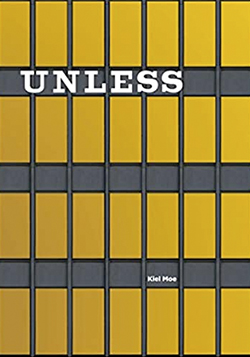In his new book Unless, Kiel Moe, professor of Architecture at McGill University and author of Empire State & Building, dissects the construction ecology, material geographies, and world-systems of the most modern of modern architectures: the Seagram Building. In his critical analysis of the environmental impact of architecture and urban real estate, Moe focuses on how humans and nature interact with the thin crust of the planet through architecture and how the immense material, energy and labor involved in building require a fresh interpretation of the ecological and social potential of design. He argues that unless architects begin to describe buildings as terrestrial events and artifacts, they will―to our collective and professional peril―continue to operate outside the key environmental dynamics and key political processes of this century.
Kiel Moe
Kiel Moe is a registered practicing architect and Gerald Sheff Chair of Architecture at McGill University. He was previously Associate Professor of Architecture & Energy in the Department of Architecture at Harvard University Graduate School of Design where also served as a Co-Director of the MDes degree program in the Advanced Studies Program and Director of the Energy, Environments, and Design research unit at the GSD.
The video begins with Kiel Moe's lecture, followed by a Q&A with Museum Director Carol Willis, whose introduction to the webinar is included after the discussion.
